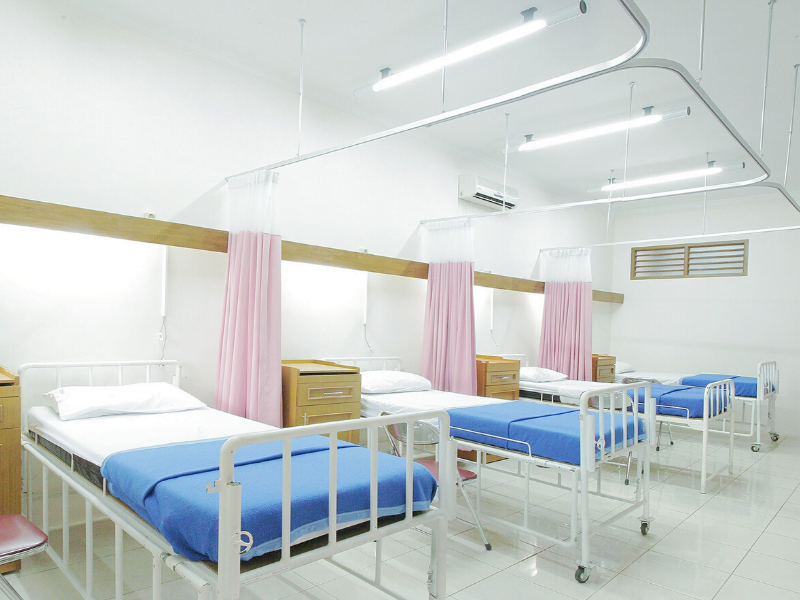While the authorities announced today that the call for proposals for a pre-fabricated hospital could go ahead following an investigation into alleged meddling, a potential UK-based supplier told The Shift that he chose not to bid because he was convinced the call was predetermined – designed for someone specific in mind.
“It was very clear this was set up as a show of being a public tender, but surely someone was already selected in the background.”
Together with another three companies interested in the bid, his team looked into the Request for Participation (RfP). To a company in demand being requested by other governments to supply such hospitals, it was immediately clear that criteria were vague, and that the authorities were less than willing to clarify specifications.
“I and my company looked at the RfP for the prefab ICU facility… Simultaneously, two other people contacted us, since we specialise in healthcare facilities and do prefabrication as well. So all-in-all I was in discussions on Tuesday and Wednesday with three groups. All interested in doing their bit. But we all realised from the start that it was impossible.”
What struck the bidders the most about the RfP was that, despite the prefabricated hospital being used for a national emergency, the terms were “onerous”, including performance bonds and day penalties of €50,000 per day for both late commencement as well as completion.
It is also a full turnkey, complete with all medical equipment (that every government is scurrying to secure) including all ‘consumables’ – the masks, gowns, gloves, sanitizers that are also in such short supply, in quantities to last throughout the duration of this epidemic.
“We know quite well how to design an ICU, but we also know there are options with pluses and minuses, affecting cost and time, which we would have wanted to discuss. No interest on the part of the Ministry of Health.”
The CPSU justified the fine given the high alert related to pandemic preparedness for COVID-19: “There cannot be any delays with the installations.” Meanwhile, Steward Healthcare receives close to €200,000 a day to run three hospitals and the government is facing questions on why St Luke’s Hospital cannot be used to deal with the crisis.
Additional red flags were raised as a result of the “terse” and “at best unhelpful” responses received by potential bidders to questions that were critical to the evaluation process. Potential bidders were given an “impossible” mission that they had to put together in 48 hours.
In a crisis where governments around the world were after the same resources in short supply in a pandemic, the Maltese authorities’ rigid stand raised eyebrows when requests for clarification were met with non-replies.
Will the pre-fabricated hospital sit in a field, or will it already have a foundation? What is the size of the area available? If some supplies that every country is fighting to acquire are delayed, would the fine of €50,000 per day still apply? The list of questions sent to the CPSU was repeated by different potential bidders, clearly indicating the answers were critical to the bid which will be decided according to the lowest price offered.
But the CPSU had a standard answer that amounted to ‘if you know what you’re doing, you should know the answer’.
Yet, it was precisely because of experience that questions for further clarification were required. “So all three groups dropped it… We actually can work very rapidly in this work, and had already put together a plan and complete equipment list.”
The answers received convinced potential bidders that the tender “was just for show”. It was clear that “all we were doing (was) covering for someone else”.
“I say that it is sad, only because I saw the sincerity of the people I was talking with, all of whom saw this as a ‘national effort’. Of course, if I were Maltese, I would see this as more outrageous rather than simply sad.”
The call was issued by the Foundation for Medical Services for the purchase, delivery and installation of a modular, extendable, fully-equipped pre-fabricated hospital which must be up and running within eight weeks and can cater for more than 90 patients and staff.
“The only reasonable conclusion, considering that this is an emergency and the government absolutely needs this within a short period of time and given that we had only 48 hours to put all this together, is that someone already got this,” they said.
The bidding procedure was put on hold last week following claims made by PN MP Jason Azzopardi on trading in influence after Maltese company TEC Ltd, a supporter of the Labour Party, had contacted a German firm for a quotation to build the hospital prior to the public call.
Health Minister Chris Fearne ordered an investigation, saying he wanted to ensure there was no foul play. Yet he then said that he received a note from the company that assured him this was not the case because TEC Ltd had not even placed a bid.
The company could still be hidden in a consortium as a subcontractor for another company, according to lawyers who spoke to The Shift.













